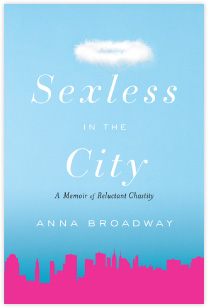My funny Valentine’s
Last Tuesday, after my Valentine’s Bible study, I boarded the bus for home with the rest of an applesauce cake in my arms (I’ve been on a weird domestic kick these days; even Roomie II is impressed with just how “culinary” I am). As I scanned for a seat, I noticed a woman sitting by herself, a slightly hungry look on her face. Should I offer her some cake?
Not that it was food-hunger, really. More like hunger in a larger sense. I chose a seat behind her, from which vantage I noticed how she kept glancing over at a tabloid-reading, middle-aged man to our left. There wasn’t much to recommend him in my mind, but maybe he looked Italian. And as she would shortly tell me, that was the sort of man she hoped for in her third husband.
We got to talking, you see. The minute I praised the puffed sleeves on her coat, she brightened instantly, launching into conversation as if we were catching up over coffee. The coat had been a gift, she said. She was glad I found it flattering since she was currently searching for her third husband, for which an attractive physique was key (she was probably early 50s).
The first one had been older, and Jewish and rich. I’m not sure how they parted, but she must have been better off for it. The second one was younger, and German, and beat her. She commented twice how she had feared he’d cut her head off. Apparently she thought Italian men were milder, for she hoped to find one for her third husband. Did I know anyone like that?
As I fumbled for an answer, I found myself reminded of both the woman from the well (whose man-snaring came up with Jesus) ... and myself. It was galling, but I gulped it out anyway.
“Well ... I’ve been looking for a husband most of my life too,” I faltered. Oh, the shame. “I haven’t found one yet. But you know,” I rushed ahead, “I’m starting to think that maybe I need to seek God first — that only He can really satisfy me. And once I’m content with Him, maybe then He’ll finally bring a husband. Because you know, if I make a husband into an ultimate thing, the relationship probably couldn’t bear that pressure.”
It was almost like confession, really, but she found it more like advice. Unfortunately her stop had come. “I’d really like to talk to you more!” Then she rattled off her number, while heading for the door and instructing the driver not to leave yet. I’m sure he thought we both were crazy, harridan spinsters — well, except that harridans are old, and I’m not (much), yet.
A friend of mine says his greatest fear is dying alone; mine’s always been that someone would choose me then later have second thoughts. Either way, all three of share a longing for community that endures. The number I tried for the woman hasn’t worked, so I guess she’ll have to find it somewhere else. But the fact that I babysat for friends Monday night, then spent Tuesday talking and learning with friends offset the lack of a boyfriend on V-day; just two of you can really be somewhat lonely, anyhow. With friends, though — especially those who are married — I can “draft” off the security their commitment to each other provides.
When I first moved to the city almost four years ago, most of my friendships began as dyads. After about a year, those friends began to meet and like each other, resulting in a fledging sense of collective. Beneath it all, though, was always the slight anxiety of knowing that their connection to each other was somewhat dependent on each staying friends with me. Sure enough, though I’ve stayed in touch with most of them, their connections with each other — a sense of group that would meet with up even without me — has broken down.
Married friends are different — all the more so once they have children. Now our community is not just dependent on me for the social glue, but their commitment to each other. And, really, I think that’s what I wanted even more than a husband — a sense that some people in my life would only leave me when death prevailed.
Even though my family is close-knit, we’re quite far-flung. In my adulthood, that once-immediate community has largely broken down. Now that my sister’s off at war, the nearest sibling to me is three or four hours’ flight. We’ve stayed in fairly good touch despite the distance, but the longer I stay a spinster the more I think it’s time I moved back to a place where at least one rellie lives. Besides, as a recent grandparent accident has reminded, it’s not just that I need community, my community needs me. Which needs I’m somewhat better qualified to serve because I don’t have a husband to care for.



